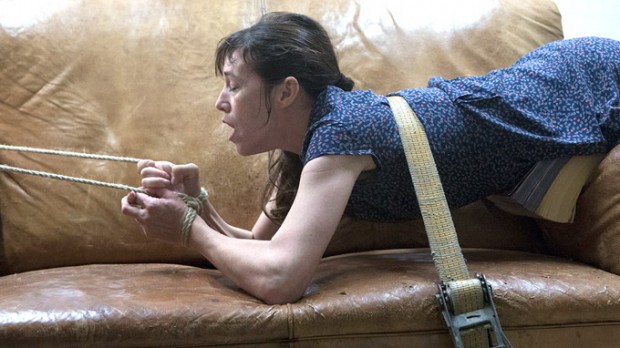
What constitutes a feminist film? While a number of movies have been described as having underlying feminist messages, there is no set definition, no easy way to identify whether or not a movie lives up to associated philosophical ideals (the staid statistical analysis of the Bechdel test notwithstanding).
However, some movies take an indirect route to feminism, portraying female characters in a far more seditious way than normally allowed. These characters typically don’t have noble aims; in fact, many are downright repugnant and deplorable.
But isn’t that really the idea? To quote the always controversial Camille Paglia, “There is no female Mozart because there is no female Jack the Ripper”. While not all the women (and girls) in the following films reach Ripper-levels of depravity, they do push their own specific brand of feminism with often questionable behavior.
1. Jubilee
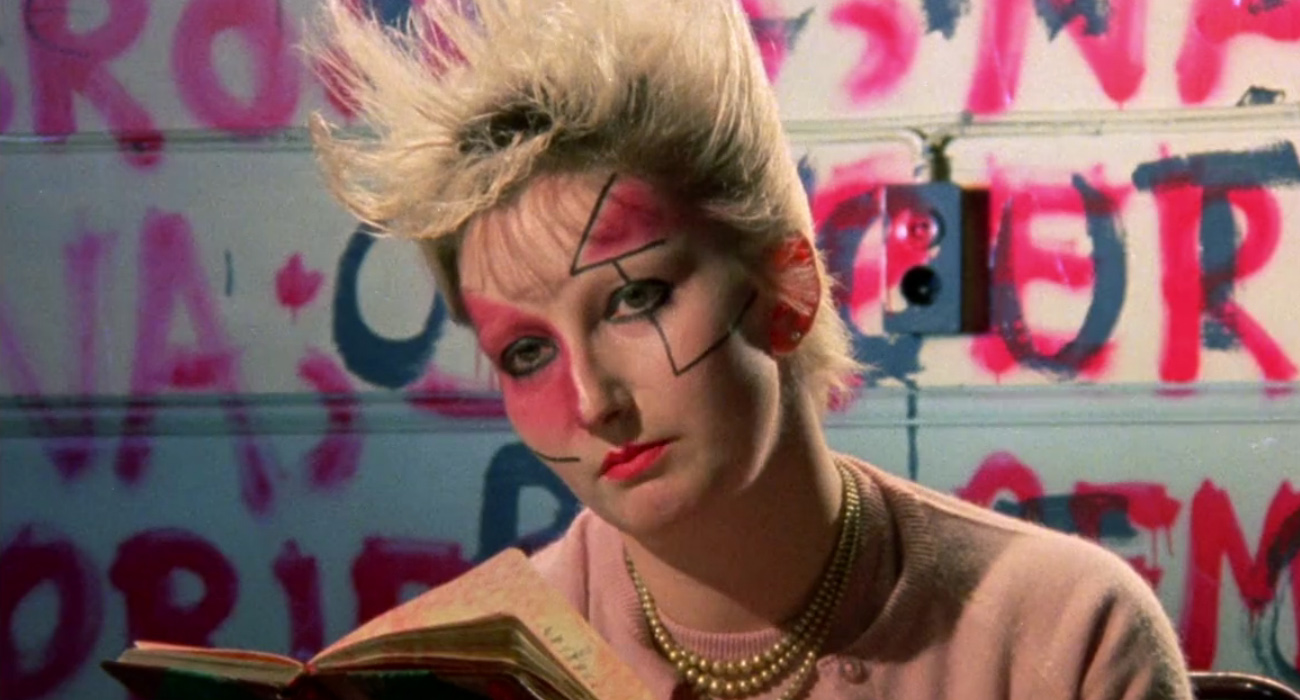
Jubilee, a sometimes maligned but usually admired punk rock magnum opus by cult filmmaker Derek Jarman, features a meandering plot about girl gangs, the British Royal Family, Nazis, and a reality-TV style music show featuring Adam and the Ants (among others). Unlike the more accessible doomed love story of Sid and Nancy, Jubilee eschews any sort of human emotion or vulnerability in favor of pure punk nihilism, often pronounced by one of the main characters during extended philosophical screeds.
Many young women in the 70s and 80s attempted to find their identities through the punk movement, due to its approval of antisocial behavior and irreverence. Jubilee features the same, as the characters work through their roles in the increasingly unstable world, buck against authority, and call into question the intentions of virtually every man they encounter.
Jubilee puts forth a rather juvenile, sneering brand of feminism that is part and parcel to the larger punk movement. What it lacks in sophistication it certainly makes up for in ambition, and one can only imagine the response from younger women upon their first viewing of the film.
2. Teeth

Speaking of Auntie Paglia, writer/director Mitchell Lichtenstein was inspired to make Teeth after hearing her lecture on the vagina dentata myth. A chastity-loving high schooler discovers she literally has teeth in her vagina after being sexually assaulted by a classmate. From there she tests out her newfound ability (and newly discovered sexuality) on various jerk-face men she encounters.
Teeth is first and foremost a black comedy, and the film has some genuinely hilarious sequences. Unlike Jubilee, female sexual response isn’t considered obsolete; instead, the main character only triumphs after she embraces her sexuality. Early in the film she expresses a legitimate fear of sex, as illustrated by her devotion to abstinence. She gains power through maiming various male villains, culminating in an “attack” on her abusive step brother.
The movie is more of a comment on controlling (and taking pride in) one’s burgeoning sexuality than it is a damnation of male behavior. Men are portrayed rather cartoonishly, ranging from dimly boorish to outright evil. But these caricatures create obstacles for the main character to overcome, thereby asserting herself as a force to be reckoned with.
3. Ladies and Gentlemen, The Fabulous Stains
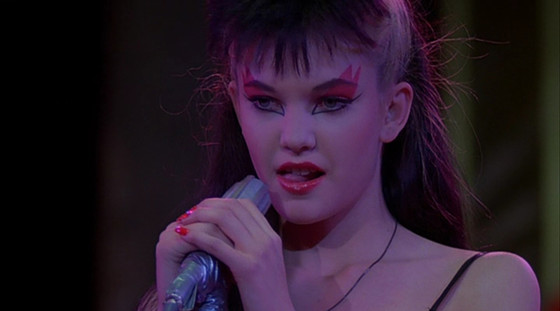
As another ode to punk, Ladies and Gentlemen, The Fabulous Stains puts a spin on the standard story of female artists getting taken advantage of by male peers. A minimally talented all-girl punk band lucks into a high-profile gig after the lead singer goes on a rant during a local news broadcast. This garners the attention of fans, who appreciate an outspoken and ribald teenager who “doesn’t put out”.
While the movie definitely occupies some prime b-movie territory, it has a little more thought behind it than attempts to exploit the punk movement for fun and profit. The actions of lead singer Corrine (played by Diane Lane) are also stand out. Instead of being trampled on by her male counterparts, she does the trampling. While this leaves her looking a bit like a villain by the film’s end, it ultimately works in her favor in the form of fame and fortune.
The film also explores the tendency for the media to christen feminist heroes, only to become dismayed by some later action. As seen recently by the response to faded feminist darlings Lena Dunham and Amy Schumer, perhaps the outspoken feminist majority should be more careful about who they christen with the mantel of good feminist™. People are not ideologies, and pinning a movement on one person or group will most likely end in disappointment.
4. Excision
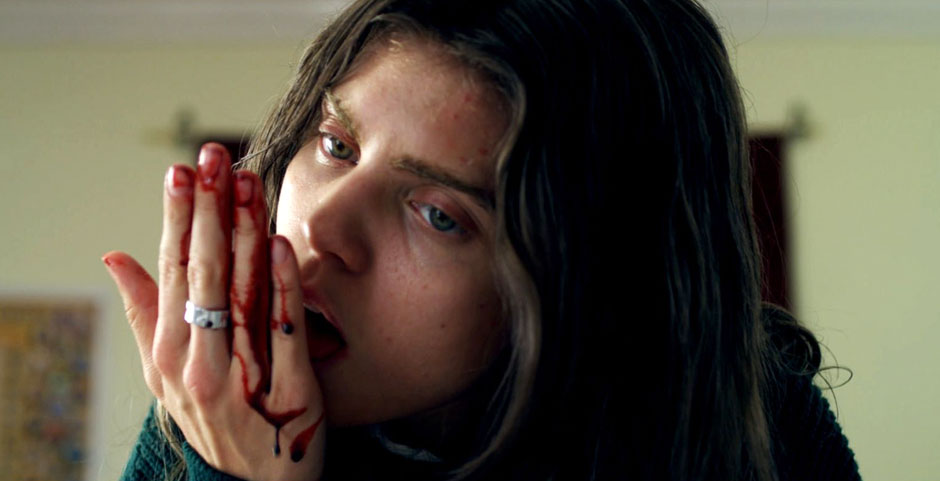
It’s hard to describe Excision. Picture a coming of age movie about the trials and tribulations of a serial killer in training. Except the serial killer is a girl with a strained family dynamic due to her mother’s incessant need for control and her sister’s cystic fibrosis.
Interspersed with vivid hallucinations of sex and violence, lead character Pauline manages to repulse and alienate virtually every person she encounters. Unlike other social outcasts put to film, Pauline revels in her rejection. She is on a mission to realize the truest version of herself, which entails sport-balling her school’s resident cool dude, rebelling against her mother, and honing her amateur surgical skills.
The underlying message of Excision may get lost in the shuffle between the bat-guano hallucination sequences and black comedy. Pauline is very much her own person, and in the face of constant criticism and discomfort she remains dedicated to her goals. While her delusional thinking ultimately leads to tragedy, she is unlike virtually any other female character within the horror genre. So-called “final girls” represent virtue and responsibility, while Pauline is driven only by her misguided desire for greatness.
5. Kill Bill Vol. 1 and Vol. 2
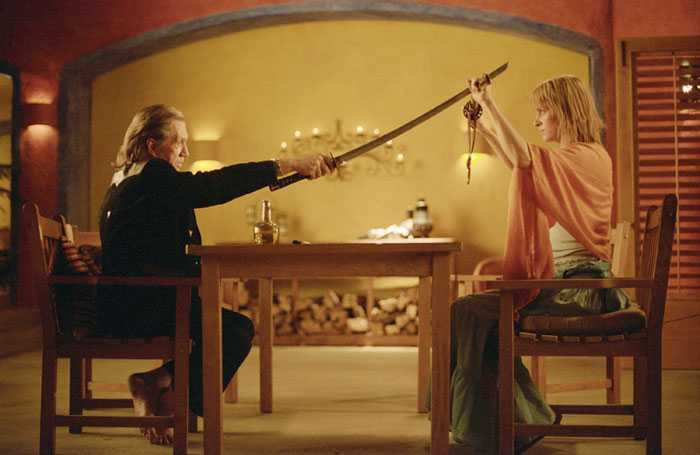
Kill Bill was a gift to Uma Thurman from Quentin Tarantino for her 30th birthday and it shows. Female characters don’t typically get a revenge arc in action movies, and they certainly don’t plow through villain after villain like The Bride. In the film she finds herself at odds with her former lover (as well as her gang) after a botched assassination attempt. A protracted coma and some ass-kicking later and she’s methodically ticking marks off her kill list.
There’s something exhilarating about a female-fronted action film, especially one that is not merely intended to be a vehicle for Angelina Jolie (who looks like she might get blown over a strong breeze).
Thurman’s stature makes her ideal for the role of The Bride/Beatrix Kiddo, and as an actress she’s never been better. She possesses the sort of action-star determination that makes her decimation of foes new and old wholly believable. She also brings a bit of vulnerability to the role, a trait that is sorely missing in many male-centric action films.
Vol. II slightly dampens the feminist power vibe with the introduction of The Bride’s daughter, which affords a more maternal driving force than evident in the first film. Honestly, it’s hard to believe that someone as hardcore as The Bride would have any interest in rearing a child. Hopefully she’ll pass down her martial arts skills and invincibility to the kid, and one day we’ll get that follow-up promised by Tarantino so many years ago.